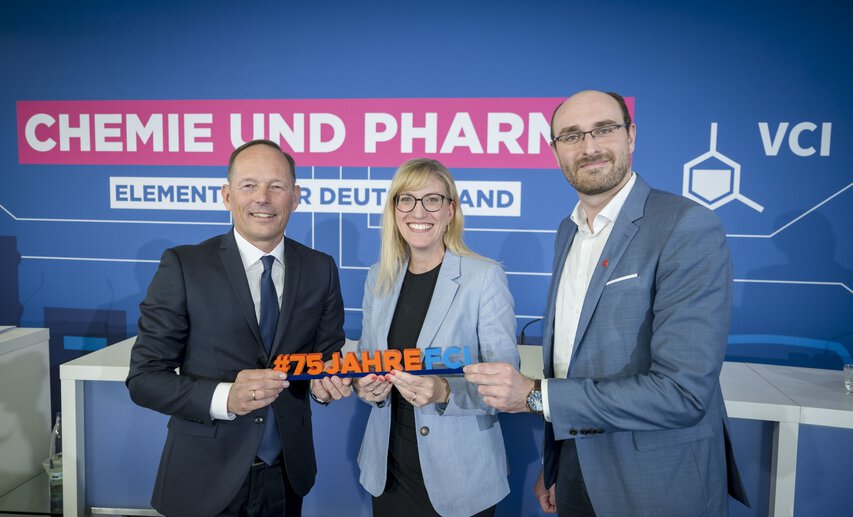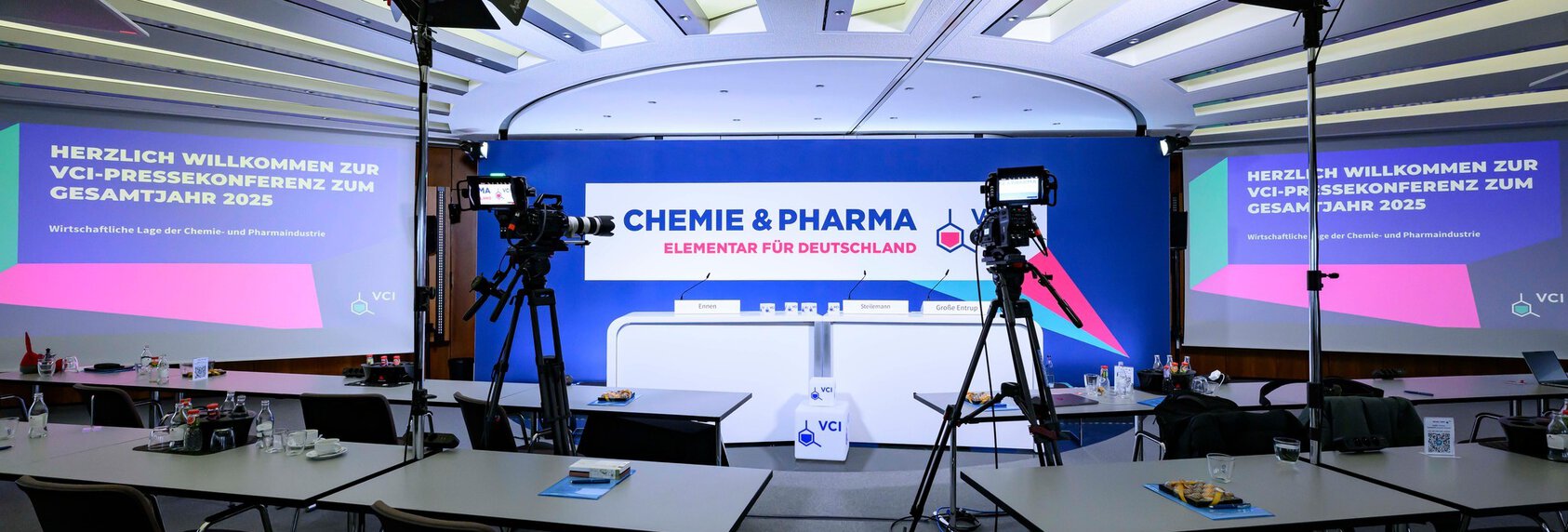22 May 2025 | Pressemitteilung
LanguageDEInnovation powerhouse chemical-pharma industry is running at full speed.

-
- Signal for the future: Industry’s research investment increases in 2025 to 16.5 billion euros
- Chemical Industry Fund supports education in 2025 with 14 million euros – rise by over 9 percent compared with 2024
- VCI demands: launch Chemistry Agenda 2045 fast, simplify regulation and bureaucracy, improve STEM teaching, enhance attractiveness of university location Germany
The German chemical-pharmaceutical industry is strengthening its path to the future with a record sum: For the year 2025, the chemical industry association Verband der Chemischen Industrie (VCI) is forecasting investments into research and development (R&D) of 16.5 billion euros – more than ever before. Over 60% of R&D spending will come from the pharmaceutical industry.
Education promotion by the chemical industry fund Fonds der Chemischen Industrie (FCI) is rising to a record level too: The FCI, which is celebrating its 75th anniversary in 2025, will invest around 14 million euros. Out of this total, roughly 2 million euros are dedicated to extra anniversary funding for data science in chemistry studies. With its budget, the FCI promotes basic research, young talent in science, and chemistry teaching in schools.
Thomas Wessel, chair of the VCI Research and Education Committee, emphasized the industry’s commitment in difficult times: “Chemical and pharma companies have not put on hold their research spending, despite massive economic problems of recent years and the less than rosy outlook. We must and we will work hard again for our future – and the Chemical Industry Fund is a building block in expanding the industry’s future viability.”
However, Wessel is concerned about growth of R&D budgets in this industry turning out weaker than those in other industries, stating the lack of Germany’s competitiveness as a reason that slows developments. To counteract this trend, the domestic location should become more attractive for chemical innovation.
Here, Wessel counts on the plans of the new federal government as a basis to build on, while things will depend on concrete actions. Next, the Chemistry Agenda 2045 announced by the government coalition partners needs to be outlined as soon as possible, and regulation and bureaucracy must be simplified. Furthermore, chemical technologies from materials research should be considered on equal footing with key technologies such as AI and quantum technologies. Wessel underlined: “Chemical technologies are not marginal topics – chemical technologies are drivers of innovation. 70 percent of chemistry is high-tech!”
Regarding Germany as a pharmaceutical location, Wessel views the coalition agreement as an industrial policy signal that could give fresh impetus to the health sector.
FCI Anniversary: 75 years of successful education promotion
On the occasion of the FCI anniversary, Wessel highlighted a truly successful track record: Since 1950, the FCI has invested more than 530 million euros in promoting education. Out of this total, over 200 million euros fell to the share of basic research, funds in excess of 230 million euros went to young talented individuals, and the School Partnership Chemistry received over 100 million euros. In 75 years, 5,400 talented persons were actively encouraged with doctoral and post-doctoral fellowships. More than 9,000 schools and 1,000 non-school places of learning benefited from FCI support.
Regarding the future viability and competitiveness of Germany as an innovation location, Wessels welcomed plans of the new federal government to support STEM education from an early age. In order to stir interest and curiosity, there should be general knowledge and chemistry teaching with comparable educational standards throughout schooling, experimental chemistry teaching must be strengthened, and well-trained and motivated teaching staff are needed. Moreover, Germany should become more attractive as a university location, for example, by making careers in academia more secure.
In conclusion, Wessel appeals: “As the next step, the new federal government should give a consistent orientation to its economy and innovation compass and simply get on with it.”
The VCI and its sector associations represent the interests of around 2,300 companies from the chemical-pharmaceutical industry and related sectors vis-à-vis politicians, public authorities, other industries, science and media. In 2024, the VCI member companies realised sales of ca. 240 billion euros and employed more than 560,000 staff. Contact: VCI Press Department, phone: +49 69 2556-1496, e-mail:
presse@vci.de
VCI on X
Contact
For questions or suggestions, please feel free to contact us.

Monika von Zedlitz
Pressesprecherin Bildungs-/Forschungspolitik, Verkehrsinfrastruktur/Logistik/TUIS, Genehmigungsverfahren/Anlagensicherheit/Chemieparks, Recht/Steuern, Responsible Care, Expertenticker Umwelt & Sicherheit
- Phone: +49 69 2556-1473
- E-mail: zedlitz@vci.de
